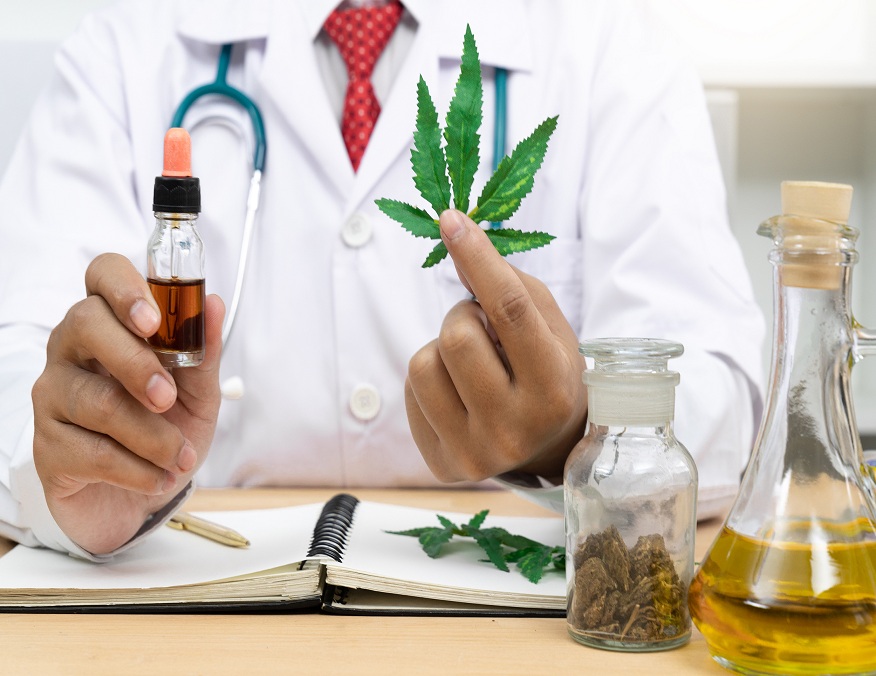Analysis of the Positive Effects of Medical Cannabis on Public Health

Public health is important to society. This aspect focuses on well-being and the overall health of communities. In the last few years, the use and potential benefits of medical marijuana have gained increased attention. This article examines the positive impacts of medical cannabis on public health. It highlights its potential benefits while stressing the importance of responsible use.
1. Understanding Medical Cannabis: Medical cannabis refers to using cannabis or its cannabinoids, such as THC (tetrahydrocannabinol) and CBD (cannabidiol), for medicinal purposes. These compounds affect the endocannabinoid, which regulates various physiological functions. Medical cannabis is available in many forms.
2. Pain Management & Symptom Relief: One major benefit of medical cannabis is that it can manage symptoms and relieve chronic pain associated with many health conditions. Cannabis can reduce pain levels in individuals with multiple sclerosis, neuropathic arthritis, or neuropathic aches.
3. Managing Neurological Conditions: Medical cannabis shows promise for managing neurological disorders, including epilepsy, Parkinson’s, and Multiple Sclerosis. CBD, specifically, has shown anticonvulsant properties and is approved for treating certain forms of epilepsy. Cannabis-based medications also have the potential to improve motor symptoms and reduce spasticity for people with neurological diseases.
4. Palliative Care & Cancer Treatment: Medical cannabis has tremendous potential to relieve cancer symptoms and other serious illnesses. Cannabis can help cancer patients undergoing chemotherapy treatment manage their pain, nausea, vomiting, and loss of appetite. Medical cannabis can improve the overall health and well-being of these patients.
5. Mental Health and Emotional Well-Being: While the relationship of cannabis with mental health is complex and difficult to understand, medical cannabis appears promising for some mental health conditions. CBD has been shown to have antipsychotic qualities and potentially reduce anxiety. Medical cannabis can benefit people with posttraumatic stress disorder, as it may help ease symptoms like nightmares or anxiety.
6. Promoting Safety for the Public and Harm Reduction: Another positive impact of medical marijuana on public health is its potential to reduce harm and promote safety. By providing patients with legal access, they can purchase products from regulated providers, ensuring that the quality and consistency of their product is maintained. It also reduces the dangers of consuming illicit or unregulated substances. In addition, medical marijuana may offer an alternative to painkillers, possibly reducing the opioid crisis by offering a safer and less addictive solution.
7. Patient Empowerment, Improved Life Quality: Medical cannabis gives patients more choices and greater control over their healthcare. The availability of medical cannabis allows people to try alternative treatments if traditional medications are not working or have unwanted side effects. Medical cannabis helps improve the quality of patient’s life by reducing symptoms and improving their overall health.
Conclusion:
The positive impact medical cannabis has had on public safety cannot be overstated. Medical cannabis has shown promising results in several fields, from pain management and neurological disorders to palliative medicine and mental health. It can improve health and well-being, reduce pain, and promote public safety by promoting safety. To reap the maximum benefits from medical cannabis, further research, regulation, and responsible use are required.
The use of teleleaf medical cannabis has demonstrated a wide range of positive effects on public health. From relieving symptoms of chronic pain to helping reduce anxiety and depression, it is clear that the therapeutic benefits of this drug can be highly beneficial for many people. While further research should continue to establish more rigorous evidence for its effectiveness, current studies suggest that tealeaf-based therapies are an effective way to improve public health outcomes in many areas.







